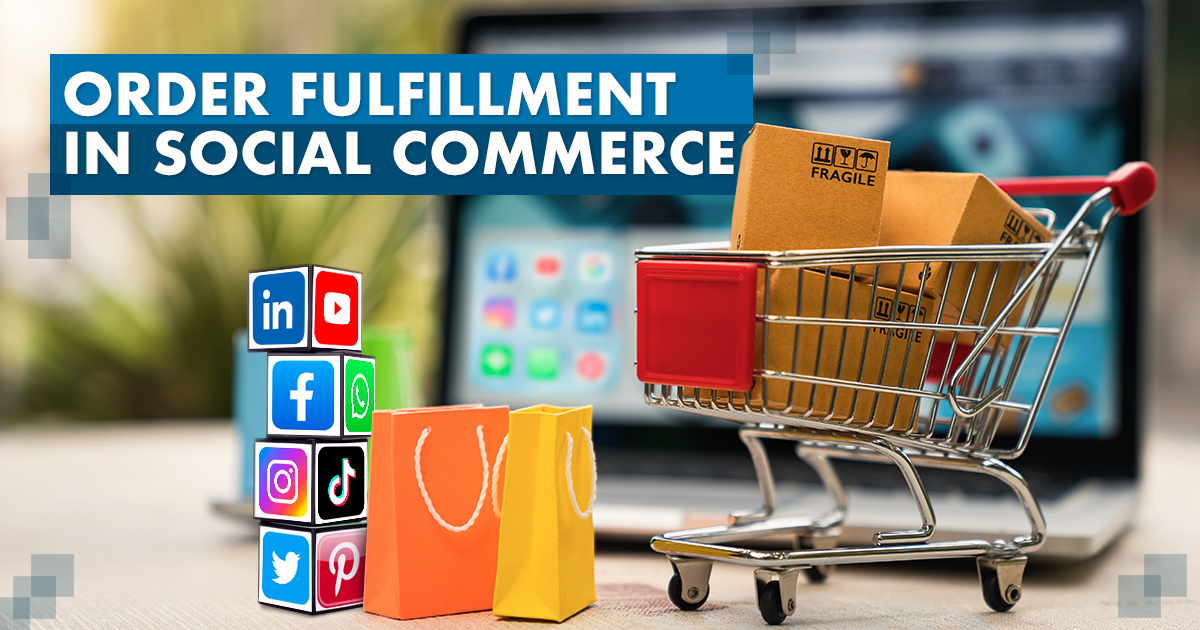
Social commerce refers to promoting and selling goods and services using social media platforms. Customers can use this way to make purchases without leaving their social media apps. In recent years, platforms such as Facebook, Instagram, and Tiktok have all introduced social commerce features. The trend is only expected to grow in the coming years. There are several reasons why social commerce is so popular.
- Firstly, social media has a mass following, providing businesses with numerous opportunities to expand their customer base.
- Not only are social media platforms ideal for networking and building relationships, but they’re also perfect for displaying products because they rely so heavily on visuals.
- Social media platforms let users interact with companies and brands more personally than other e-commerce sites.
For these reasons, social commerce is expected to be one of the biggest trends in ecommerce in the coming years. If you’re a business owner, it’s important to be aware of social commerce and how it can benefit your business. In 2026, social commerce is expected to reach its full potential and become one of the most important channels for businesses to sell their products. Don’t miss out on this opportunity to get ahead of your competition!
The Benefits of Using Social Media To Fulfill Orders
As social media increasingly becomes a powerful tool for businesses, more and more companies are using it to fulfill orders and deliver them to customers. Social commerce logistics is used when businesses use social media platforms to sell, ship, and deliver products. And there are plenty of benefits to using social media for fulfillment.
Utilizing social media is a fantastic method to connect with new customers you wouldn’t have had access to before. With billions of people using platforms such as Facebook, Instagram, and Tiktok every day, businesses selling through these means have a significantly larger customer base than those without. Not only are social media platforms useful for connecting with customers, but they’re also adding new features that make it easy to sell products and services. This makes social commerce logistics accessible to businesses of all sizes.
Social media not only helps with product fulfillment but can also upgrade the quality of your customer service. Customers are accustomed to rapid service when they buy something online, so it’s important to use social media to meet those expectations. Timeliness is key to customer satisfaction, and social media platforms can help businesses ensure that their customers’ orders are promptly fulfilled. Furthermore, social media provides an excellent way for businesses to stay in touch with their customers and address any issues or concerns they may have swiftly.
Social media provides a number of advantages for ecommerce businesses, from interacting with potential customers to improving customer service.
How To Improve Your Order Fulfillment Process Using Social Media?
Social media has become an essential tool for businesses of all sizes. In addition to providing a platform for marketing and customer engagement, social media can also improve order fulfillment.
Here are some tips for using social media to streamline your order fulfillment process:
- Keep an eye on your inventory levels by using social media. This way, you’ll always know what products are running low and need to be restocked.
- Keep your customers in the loop by using social media to communicate with them about their orders. This way, you can provide consistent updates and answer any questions they may have along the way.
- Use social media platforms to collect customer feedback that you can use to enhance your product offerings and make sure that consumers are content with their buys.
By following these tips, you can use social media to improve your order fulfillment process and keep your customers happy.
What Are The Best Practices In Doing Social Commerce Logistics?
“Best practices” in social commerce logistics vary depending on the type of business, but generally speaking, they involve creating a system that is efficient and easy to use. This may include using a third-party fulfillment service, automating order management, and offering customer support through social media channels.
In addition, it is important to keep track of inventory levels and shipping schedules to ensure that orders are fulfilled promptly. By following these best practices, businesses can streamline their social commerce operations and provide a better customer experience.
The Future of Social Commerce and How To Stay Ahead of the Curve
The future of social commerce is still very uncertain. Many experts believe that social media platforms will eventually become more like traditional e-commerce sites, with less emphasis on discovery and more on purchase. Others believe that social commerce will continue to grow in popularity as platforms like Instagram and TikTok continue to integrate shopping features.
For businesses, it is important to stay ahead of the trends in social commerce to remain competitive. One way to do this is to experiment with new platforms and features as they become available. If you want your business to succeed, it’s important to focus on developing relationships with customers instead of just selling them stuff. By interacting with customers personally, businesses can create a group of loyal followers who are more likely to buy from them again.
SEE ALSO:
